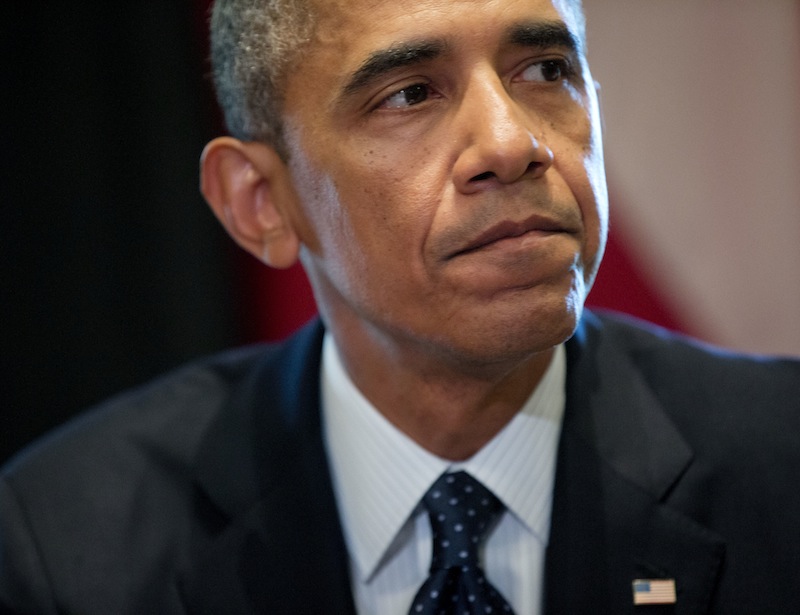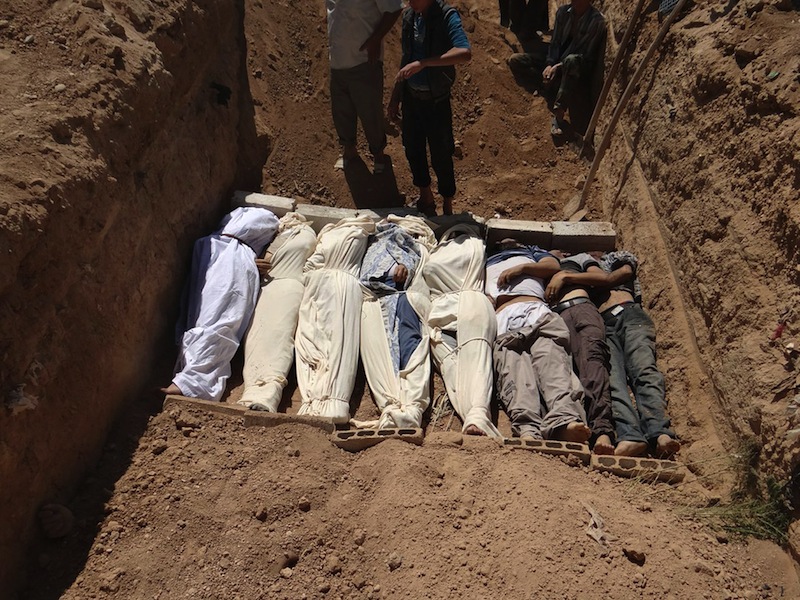WASHINGTON — For the first time in more than two years of a bloody civil war, President Barack Obama has declared Syria a national security threat that must be answered with a military strike — and in doing so he is warning Americans as much about the leaders of Iran and North Korea as about Bashar Assad.
America’s credibility with those countries will be an immediate casualty if it stands down now on Syria, administration officials say in making their case for U.S. missile strikes.
Following an Aug. 21 chemical weapons attack outside Damascus, the White House declared Syria’s 2-year civil war a top risk to American interests. If the U.S. fails to respond, officials said this week, it could encourage other hostile governments to use or develop weapons of mass destruction without fear of being punished.
It’s a connection that’s not immediately clear to many Americans — especially after the White House refused to send military support earlier in the Syrian war. The recent chemical weapons attack killed 1,429 people, U.S. intelligence officials say. Other estimates are somewhat lower. The wider war has killed more than 100,000.
In House and Senate hearings this week designed to seek congressional approval to strike Assad ‘s government — probably with cruise missiles but not with ground troops — top administration officials pleaded with skeptical lawmakers to consider the risks of doing nothing.
“Iran is hoping you look the other way,” Secretary of State John Kerry told the Senate Foreign Relations Committee. “Our inaction would surely give them a permission slip for them to at least misinterpret our intention, if not to put it to the test. Hezbollah is hoping that isolationism will prevail. North Korea is hoping that ambivalence carries the day.”
“They are all listening for our silence,” Kerry said.
Defense Secretary Chuck Hagel raised the possibility that Assad’s chemical weapons stockpile, considered one of the world’s largest, could be seized by his allies, including the Lebanon-based militant group Hezbollah. “We cannot afford for Hezbollah or any terrorist groups determined to strike the United States to have incentives to acquire or use these chemical weapons,” Hagel told the House Foreign Affairs Committee.
Vali Nasr, a former senior official in Obama’s State Department, said Syria’s spiraling death toll, the rise of fighters in Syria associated with al-Qaida and other extremist groups, and pressure on neighboring nations from a flood of refugees have already threatened U.S. security interests for years.
“For a very long time we reduced Syria to just a humanitarian tragedy that, as bad as it was, was not a sufficient cause for American involvement,” said Nasr, now dean of the Johns Hopkins School of Advanced International Studies. “That meant we ignored all the other ways in which Syria was a national security threat. And for two years we tried to minimize the impact of Syria, and now all of a sudden the administration finds itself in the position of having to give sufficient urgency to Syria to justify action.”
Over the past two years, the White House has mightily resisted intervening in Syria’s civil war with U.S. military force. A year ago, Obama signaled the one “red line” exception would be the use of chemical weapons.
At the same time, the U.S. has used a heavy hand in years of negotiations with Iran as world powers try to persuade Tehran to significantly scale back its nuclear program, and seek to prevent its ability to build a bomb.
And Washington has repeatedly and sternly warned North Korea against launching underground nuclear tests and missiles that have rattled its regional neighbors and raised concerns that Pyongyang is building a nuclear-tipped rocket that can reach the United States.
“Iran and North Korea are carefully watching our next move,” Rep. Ileana Ros-Lehtinen, R-Fla., said during the House hearing Wednesday. “A refusal to act in Syria after the president has set such a clear red line will be seen as a green light by the Iranian regime, who will see that we don’t have the will to back up our words.”
The administration’s credibility was already at risk, however, after its muted response to a series of small-scale chemical weapons attacks this spring in Syria that killed a few dozen people.
As a result of those attacks, Obama pledged in June to increase aid to certain vetted rebel groups fighting Assad in a package that officials said included some weapons. But the aid did not start flowing until very recently and, overall, fell far short of being seen as a decisive or forceful action to punish Assad for the attacks.
Kerry on Wednesday said the scope of the August attacks — and strong intelligence indicating that Assad’s government was to blame — convinced Obama that his red line had been crossed. Before now, “the president didn’t want to rush into something,” Kerry said.
The administration is alone in claiming such a high death toll, citing intelligence reports but refusing to be more specific. The Britain-based Syrian Observatory for Human Rights, which collects information from a network of anti-regime activists in Syria, said over the weekend that it has been compiling a list of the names of the dead and that its toll reached 502.
Obama, in Russia on Thursday for a world leaders’ economic summit, has insisted that his red line merely mirrors that of an international treaty banning the use of chemicals weapons. The treaty has been signed by more than 180 countries, including Iran and Russia — two of Assad’s key supporters.
Still, recent polls indicate meager support among Americans for using military force in Syria, and many lawmakers, including Obama’s fellow Democrats, remain unconvinced.
“I see this potential bombing campaign as a potential next step toward full-fledged war,” said Sen. Tom Udall, D-N.M., who voted against the Senate panel’s plan to allow military force in Syria.
Alluding to U.S. wars in Iraq and Afghanistan that have cost lives and money for more than a decade, Udall added: “We have been here before.”
Mindful of the president’s intended legacies of ending the war in Iraq and winding down the one in Afghanistan, the Obama administration recently has rejected any comparisons to Iraq, pledging that any U.S. military action will be very narrow and limited in its mission.
But in pressing the urgency in Syria, the administration reached back to the specter of 9/11 attacks — which killed almost 3,000 people 12 years ago next week — as an example of the danger of inaction.
U.S. intelligence officials warned for years before 2001 of a need to curb al-Qaida’s threat before it could spread.
“What can I tell my constituents about why these strikes are in our national security interest? Why these matter to these folks who are struggling every day?” Rep. Ami Bera, D-Calif., asked at the House hearing.
Hagel cited “a clear, living example of how we are not insulated from the rest of the world, how things can happen to the United States in this country if we are not vigilant, and think through these things, and stay ahead of these things, and take action to prevent these things from occurring.”
“Maybe something would not happen in this country for a couple of years,” Hagel said. “But the 9/11 anniversary, I think, is a very clear example you can use with your constituents.”
Send questions/comments to the editors.




Success. Please wait for the page to reload. If the page does not reload within 5 seconds, please refresh the page.
Enter your email and password to access comments.
Hi, to comment on stories you must . This profile is in addition to your subscription and website login.
Already have a commenting profile? .
Invalid username/password.
Please check your email to confirm and complete your registration.
Only subscribers are eligible to post comments. Please subscribe or login first for digital access. Here’s why.
Use the form below to reset your password. When you've submitted your account email, we will send an email with a reset code.